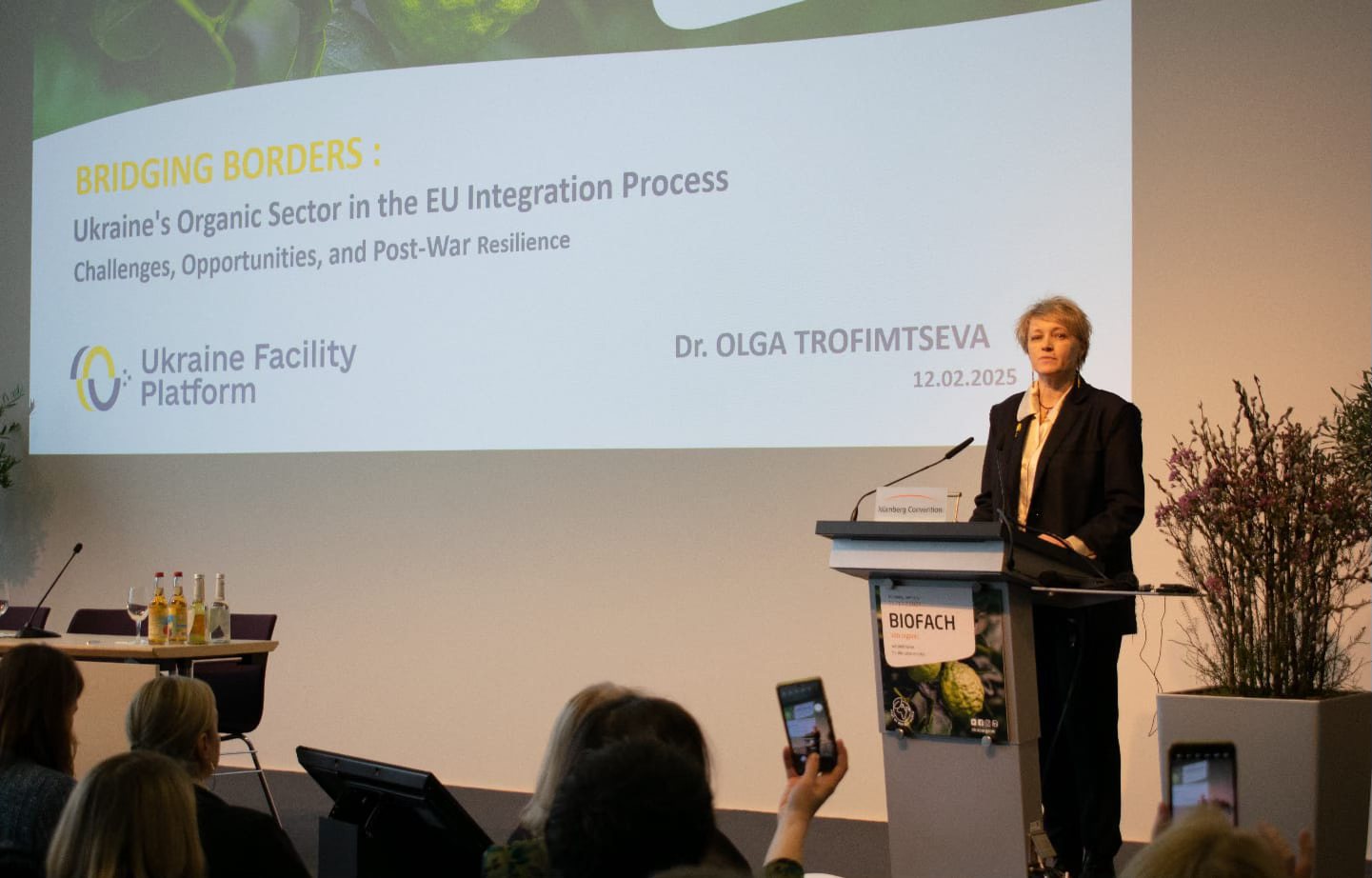From challenges to solutions: how Ukraine can boost the EU’s organic growth?
Energy and Climate
With Ukraine, Europe can achieve its goals of reducing import dependency and producing competitive European products more quickly, believes Olga Trofimtseva, Development Program Coordinator for the Agricultural Sector at the Ukraine Facility Platform.
Ukraine ranks among the top five largest suppliers of organic products to the EU. The latest European Commission report on agricultural imports indicates that Ukraine has maintained this position for the sixth consecutive year. In 2023, Ukraine’s organic agricultural exports to Europe declined by 21% compared to the previous year. However, within just the first 10 months of 2024, Ukrainian organic exports to the EU have already surpassed these figures.
This means that Ukrainian farmers and producers, including those in the organic sector, can help Europe effectively combine its sustainability policy goals with increased agricultural productivity. Ukraine has the potential to fill gaps in the supply chains of both conventional and organic products and ingredients, offering European consumers high-quality organic food.
“Do you want a resilient and sustainable agricultural sector in the EU that produces globally competitive products? This can be achieved within the next ten years under one crucial condition: Ukraine’s membership in the EU and its integration into European production and processing chains,” stated Olga Trofimtseva during the conference “Ukraine’s Organic Sector on the Path to the EU: Challenges, Opportunities, and Post-War Resilience,” held at the BIOFACH international exhibition in Nuremberg.
How can effective solutions be found? Through the implementation of joint investment and cooperation projects in the most advanced segments of the organic industry. Examples include:
- Joint solutions for customs control issues and streamlined supply chains through the creation of regional organic processing and storage hubs both in Ukraine near EU borders and in Eastern and Central European countries.
- European investments in processing organic protein and leguminous crops in Ukraine, where production capacity can be rapidly increased. This would help the EU reduce its reliance not only on imported livestock feed from China and other countries but also on imported organic protein crops for human consumption.

- Development of bio-based projects, such as producing biodegradable materials and bioplastics from organic hemp and flax to support the bioeconomy.
- Soil health initiatives and advancements in regenerative agriculture research to combat land contamination and enhance climate resilience. Establishing a joint research center focused on organic agriculture should be a priority for cooperation in the near future.
“At UAFP, we analyze opportunities for the development of Ukraine and Europe in the agricultural sector, including the organic industry. The next steps should involve further adaptation of Ukrainian legislation on organic farming, as well as practical implementation of projects in these key areas. Ukraine is not a problem for the EU – it is a solution. The only thing left is to stop being afraid to see it,” emphasized Olga Trofimtseva.
